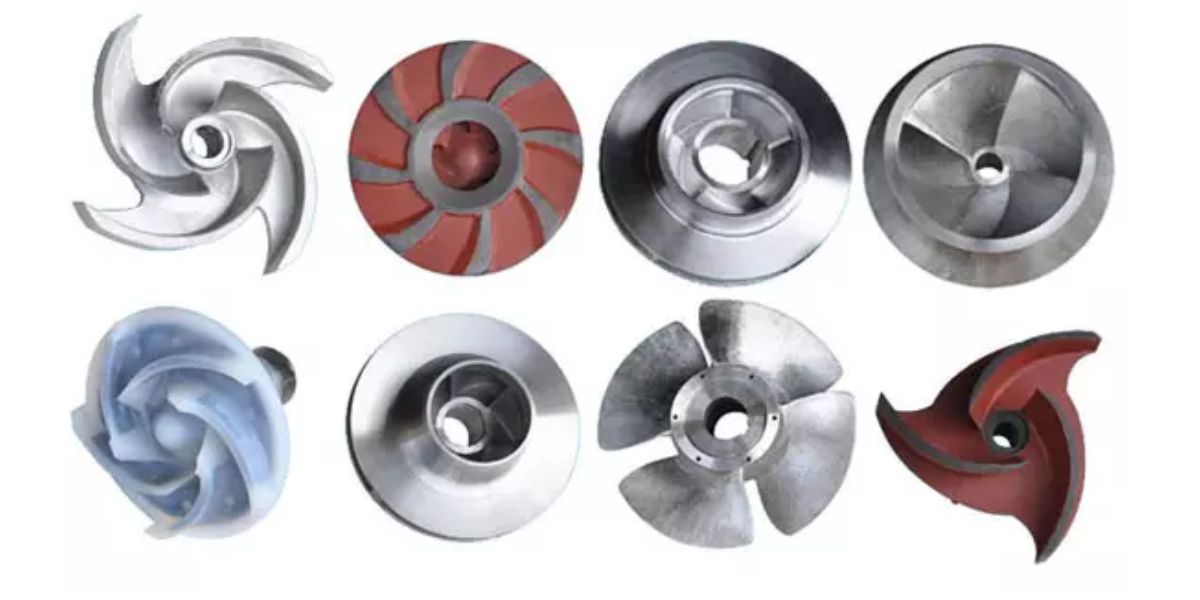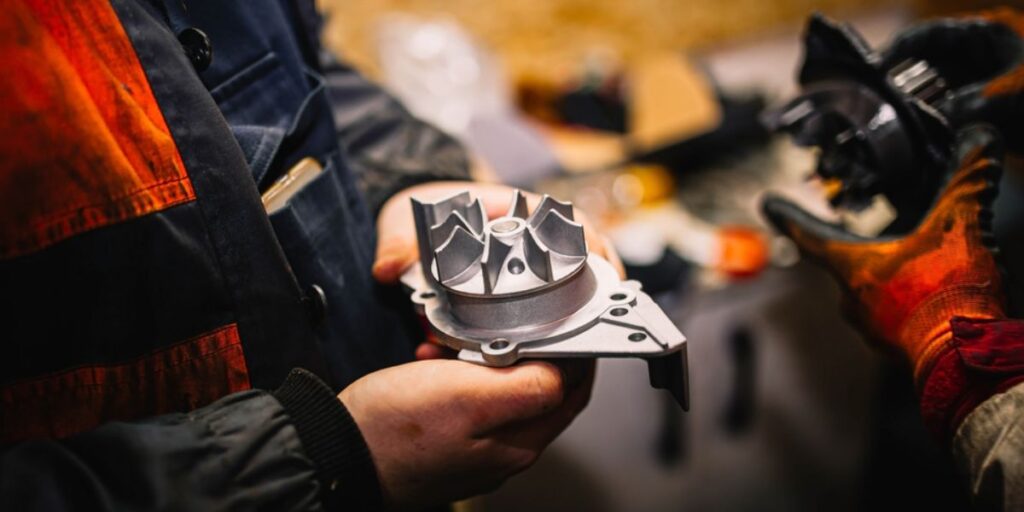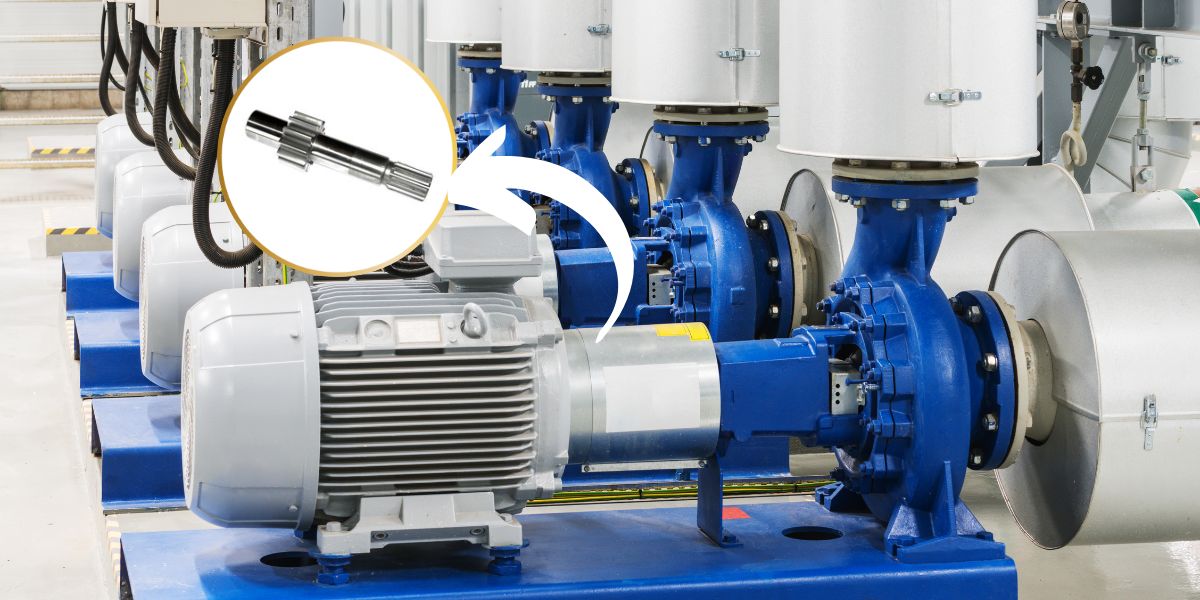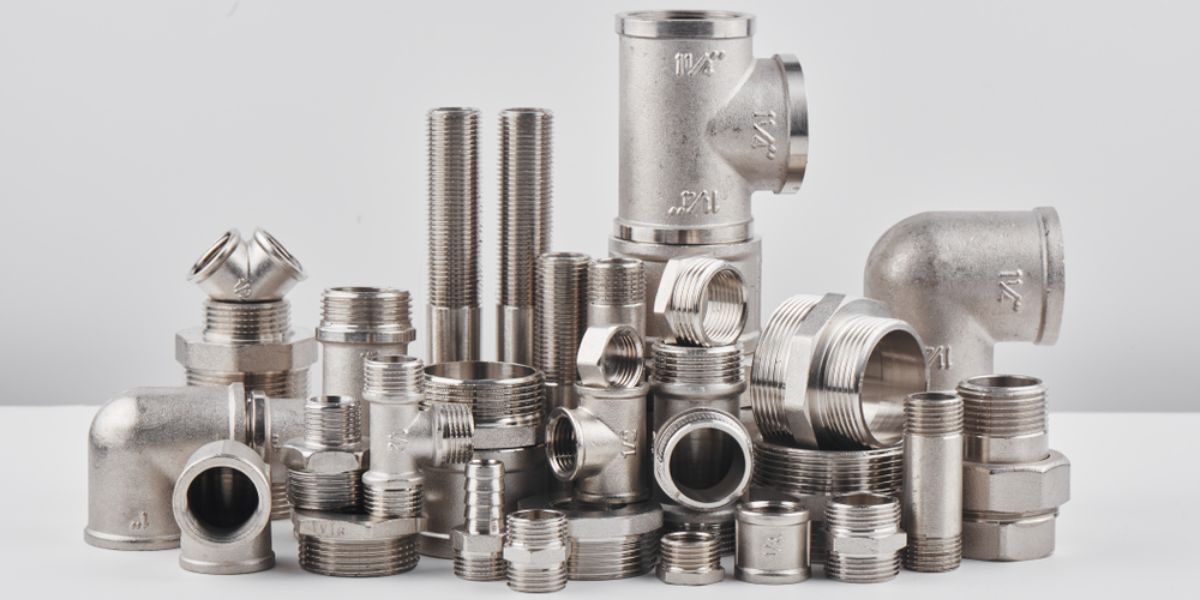A Breakdown Of Pump Impeller Types And Applications
Impeller pumps are essential for fluid transfer in numerous industries. An impeller is a rotating part of a centrifugal pump that increases pressure and flow rate by converting energy into fluid. It uses centrifugal force to move liquid through the pump’s housing and is usually composed of blades or wafers. Fluid enters the intake as it rotates and escapes through the discharge port under higher pressure. A pump’s performance and efficiency are greatly impacted by the impeller design, which affects the fluid viscosity, corrosiveness, and particle content. Thus, it is essential to understand the various pump impeller types and their uses.
Bernoulli’s principle, which describes the relationship between fluid pressure and velocity, is critical to impeller pump operation and performance analysis.
In this article, we will learn more about the most imitated pump impeller types and applications in different industries to help you before you choose a suitable impeller.
Exploring the Common Pump Impellers Types
Various kinds of impellers are utilized for specific functions based on the type of fluid and the intended use. Here are the common pump impeller types and how they are used.
Open Impeller
Open impellers feature vanes that do not have a covering or protective shroud and are open on both sides. These impellers are less strong in terms of mechanics compared to their closed counterparts, which restricts their application to small, low-cost pumps that operate under minimal stress.
Best Used Purpose
Open impellers are used for fluids containing solids. They are commonly seen in situations with light slurries or wastewater and where the fluid may have small debris. Because of their reduced effectiveness and the increased net positive suction head (NPSH) needed, they are most appropriate for non-essential uses with few solids.
Semi-Open Impeller
Half-open impellers have a shield on the rear to reinforce the blades, while the front is left uncovered. This design increases their durability compared to open impellers while still enabling them to manage certain solid materials.
Used Purpose
Use semi-open impellers in situations that need a mix of solid handling and efficiency. Usually, medium-sized pumps handling fluids with small, delicate solids utilize them. To ensure the best performance, it is crucial to carefully manage the clearance between the impeller and pump casing to prevent slippage and recirculation.
Closed Impeller
Closed impellers are fully enclosed with both front and back shrouds. This design enhances strength and effectiveness, especially when dealing with clear liquids. Closed impellers also work well with lower NPSH, reducing their vulnerability to cavitation.
Using Purpose
Closed impellers are the preferred option for big pumps that move clear liquids with no contaminants. Because of their closed structure, they are susceptible to blockages when in contact with liquids or solids, which is why they are utilized in settings that require pure fluids.
Vortex Blade
The distinct design of the vortex impeller stops solid particles from interacting directly with the impeller. The blades are set back, forming a swirling motion that pushes the fluid through the pump without touching the impeller blades. This reduces wear and lets heavier solids flow by generating a vortex to circulate fluid with less impeller contact.
Purpose Of Use
Vortex impellers are perfect for managing contaminated fluids with bulky, fibrous solids or debris. Their low chance of getting blocked makes them ideal for tasks involving fluids containing a high level of waste or sludge. Nevertheless, as a result of their lower efficiency, they are only utilized when required.
Impeller Cutter
Cutter impellers have sharp vanes resembling scissors made to grind and slice solids into smaller pieces before the fluid goes into the pump. This characteristic helps avoid blockages in the pump, making cutter impellers especially effective for fluids containing a large amount of solids.
Best Used Purpose
Cutter impellers are employed when it is necessary to prevent pump blockages by disintegrating solid particles in the fluid. They are frequently utilized in sewage systems with waste-containing fluids or industrial settings handling fibrous materials.
Impeller Screw Pump
The screw pump impeller’s helical vanes, which resemble a corkscrew, allow viscous fluids to be moved effectively with minimum pulsation and continuous flow. Because of its smooth construction, there is less turbulence and constant fluid transfer.
Best Used Purpose
Screw pump impellers can be used for operations that require a continuous flow of viscous fluid. These can often be used in industries that deal with thick liquids like oils and slurries, which should be moved smoothly without any obstacles.

Core Applications Of Impeller Pumps
Due to their effectiveness in moving fluids, impeller pumps are an essential part of many different industries. The following are some important uses for impeller pumps.
Supply And Irrigation
Pump impellers are widely used in water supply systems, irrigation processes to transport water to residential areas, and farming.
Chemical Processing
Pump impellers are used to regulate the flow of viscous material during chemical processing so that they can ensure the safe transportation of chemicals during certain processes like processing, storage, or mixing.
Wastewater Management
These are also crucial in sewage and wastewater treatment as they help in moving the wastewater from the treatment system to the sludge pumping.
HVAC Systems
During the process of heating, ventilation, or air conditioning, the pump impeller helps move eaters and refrigerants while considering temperature control and energy distribution.
Marine Applications
Pump impellers are also used in ships and submarines for ballast control and cooling systems. This improves the safety and operational efficiency.
Mining and Mineral Processing
These pumps are also used in mining-related operations to facilitate the processing or extraction of minerals, which helps move slurries and fluids. Impeller pumps are essential to many industrial operations because of their effectiveness, adaptability, and capacity to handle a variety of fluids.
Selecting The Right Pump Impeller
Selecting the correct impeller style for a pump is essential for maximizing efficiency in particular uses. By understanding the different kinds of pumps based on their characteristics and operational requirements, businesses can work efficiently and extend the life of their pumping system. It is also crucial to partner with a dependable pump shaft manufacturer when looking for high-quality impellers and pump components.
Bhansali Techno Components, which are top players in the precision components manufacturing industry, offer top-quality parts to ensure the efficient operation of industrial pumps. With a dedication to accuracy and longevity, they provide options that guarantee top-notch pump performance across all industries.




